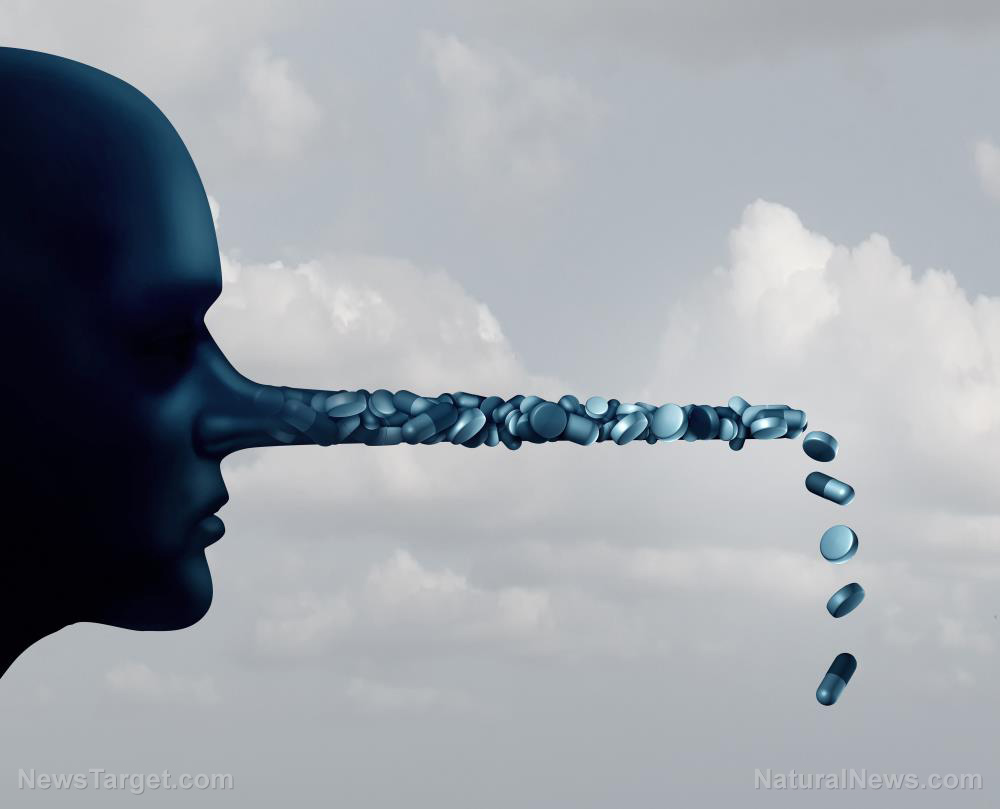 Parler
Parler Gab
Gab
- Dehydration amplifies the body's stress response, causing a significantly higher spike in the stress hormone cortisol.
- A new study found that individuals with low daily fluid intake had a 50 percent greater cortisol surge during stress tests than well-hydrated peers.
- The mechanism involves the hormone vasopressin, which conserves water but also activates the brain's stress-signaling system.
- Chronically elevated cortisol is linked to long-term health risks, including weight gain, heart disease and metabolic disorders.
- Consistent, daily hydration is a simple, foundational strategy to help modulate the body's physiological reaction to stress.
The cortisol connection
The study meticulously screened healthy adults, dividing them into groups based on their typical fluid consumption. After a week of monitoring, participants were subjected to a standard psychosocial stress test involving public speaking and mental arithmetic. While both groups reported feeling stressed and showed elevated heart rates, the biological data told a different story. Saliva samples revealed that individuals in the low-fluid-intake group had a significantly sharper rise in cortisol. This hormone, central to the fight-or-flight response, is essential for survival, but its chronic elevation is a known risk factor for a host of serious conditions, including hypertension, weight gain and metabolic disease. The research indicates that arriving at a stressful situation even mildly dehydrated can set the stage for an exaggerated and potentially damaging hormonal reaction.A hormonal double-duty explains the effect
The mechanism behind this phenomenon lies in a critical overlap in the body’s command systems. When fluid levels drop, the body releases vasopressin, a hormone that instructs the kidneys to conserve water. However, vasopressin has a dual function; it also interacts with the hypothalamic-pituitary-adrenal axis—the very system that triggers the release of cortisol. This creates a direct physiological link: The body’s signal to save water simultaneously flips the switch on the stress response. The study confirmed this by measuring copeptin, a marker of vasopressin activity, which was higher in the less-hydrated group. This overlap between hydration and stress regulation offers a compelling reason why long-term studies consistently find that poor fluid intake is associated with poorer health outcomes.Hydration as a foundational pillar of health
This research elevates hydration from a general health suggestion to a key component of stress resilience. The findings suggest that maintaining adequate fluid intake is not merely about physical performance or kidney function, but about keeping the body’s complex hormonal communication in balance. Historically, the focus on stress management has centered on psychological techniques and lifestyle changes like diet and exercise. This study introduces a more foundational element: ensuring the body’s basic physiological needs are met to prevent the stress system from becoming primed for overreaction. Importantly, thirst was found to be an unreliable indicator, meaning individuals may be dehydrated and amplifying their stress response without feeling overtly thirsty.A simple prescription for a complex problem
For those seeking to manage stress and its physical toll, the prescription is straightforward yet profound. Fluid needs vary, but a practical guideline is to drink consistently throughout the day, not just when thirst strikes. All beverages, including tea, coffee and milk, contribute to overall fluid intake, debunking the myth that only plain water counts. A simple check of urine color—aiming for a pale yellow—can serve as an effective daily hydration gauge. While drinking water is not a cure for anxiety, it is a low-cost, accessible strategy to support the body’s innate systems. In the context of holistic health, proper hydration works synergistically with other natural approaches—such as balanced nutrition, herbal remedies and lifestyle rhythm—to build a foundation that helps the body withstand life’s inevitable pressures without descending into a state of chronic hormonal imbalance.An accessible tool for modern well-being
This new understanding positions consistent hydration as a first-line defense in the complex landscape of modern stress. It transforms a mundane daily habit into a powerful tool for biological regulation, offering everyone a simple way to influence their body’s most primal responses. As science continues to unravel the intricate connections between daily habits and long-term health, the evidence is clear: supporting the body’s natural rhythms and communication begins with the most fundamental elements. Ensuring adequate fluid intake is a proactive, easily achievable step toward preventing the cumulative wear-and-tear that stress can inflict, ultimately protecting both mental well-being and physical vitality. Sources for this article include: TheEpochTimes.com Journals.Physiology.org ActiveBeat.comIntelligence agencies suppressed Wuhan lab leak evidence
By Patrick Lewis // Share
Common pesticides are quietly causing a male fertility crisis
By Cassie B. // Share
A wolf in health freedom clothing: How a deceptive hoax targeted a movement
By Willow Tohi // Share
FDA appoints longtime oncology chief to head its Center for Drug Evaluation and Research
By Ramon Tomey // Share
TAR-200 implant: A game-changer for bladder cancer?
By Ramon Tomey // Share
Governments continue to obscure COVID-19 vaccine data amid rising concerns over excess deaths
By patricklewis // Share
Tech giant Microsoft backs EXTINCTION with its support of carbon capture programs
By ramontomeydw // Share
Germany to resume arms exports to Israel despite repeated ceasefire violations
By isabelle // Share










